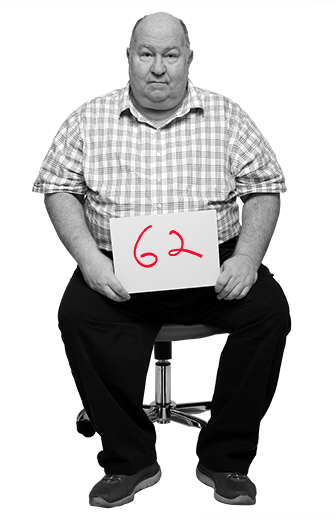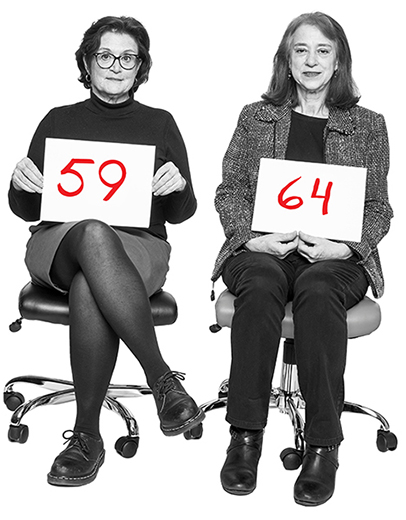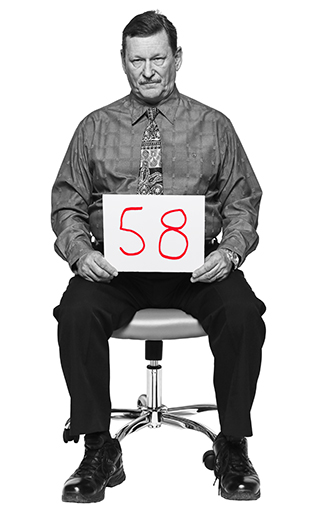AARP Hearing Center


Jack Gross’ name has become synonymous with the difficulty of fighting age discrimination in the workplace.
In 2004, Gross, then a 55-year-old insurance executive, filed an age discrimination lawsuit against his employer, FBL Financial Group, after he was demoted from his position as claims administration director. Gross’ case was ultimately appealed to the Supreme Court. The landmark 2009 decision not only went against him but established a legal precedent, making it much tougher to bring a successful case under the 1967 Age Discrimination in Employment Act (ADEA).
Before Gross’ case, workers needed to prove only that age was a motivating factor in an action that harmed their employment. Since Gross’ case, employees have had to prove that age was the deciding factor.
Lawyers say that's much more difficult to prove in court, and it has kept many older workers from pressing discrimination cases against their employers.
A decade after the Supreme Court decision, Gross, now 71, has had a lot of time to think. Despite the lingering impact of his case, he still believes he did the right thing. “A lot of people are being hurt based on my case,” he says. “That's my big regret. But if I had to do it over again, I am fairly confident I would come to the same decision today."
The problems started for Gross when he and several other older workers at FBL Financial Group were demoted. Gross did not lose his job, but the title change meant his career would be in a holding pattern, and lesser pay increases would mean his retirement package would be worth less.
After Gross filed his age discrimination case, things got rough. He spent the next seven years working at the company as his case wound through the courts, but with no job description and nothing much to do as the company cut him off from his previous work tasks.
"I felt like I was crossing enemy lines whenever I walked in to the office,” he recalls.
For decades before the lawsuit, Gross had eaten lunch with a group of colleagues. Now he ate alone. “I didn't want anyone else to get in trouble for being friends with me,” he says.
The stress began to take a toll on his health, and Gross says anxiety symptoms landed him in the hospital several times. Since leaving the company, Gross has learned to cope with the loss. And he continues to advocate on behalf of the proposed Protecting Older Workers Against Discrimination Act (POWADA), federal legislation that would lower the burden for winning age discrimination cases — essentially overturning the 5-4 Supreme Court decision that bears his name. The act was first introduced in 2009, and Gross says he hopes it will someday become law.
"I have nothing to gain financially at this point,” Gross says. “But a lot of people are being denied justice because of my case. I'd like to see that changed."


Floyd Cardwell
The case: Ruby Tuesday
At 59, Floyd Cardwell did not feel like an old man. And he certainly wasn't ready for retirement. But a job interview for a general manager position at a Ruby Tuesday restaurant in Boca Raton, Florida, changed that.
Cardwell, who had 20 years of experience working in and managing restaurants, thought he was a shoo-in for the job, which he said paid around $45,000. He felt the telephone interview before the in-person interview had gone very well. So well, in fact, that a recruiter asked him to fill out a background check release form that included his date of birth in order to expedite the hiring process.
When he arrived at the interview, however, the manager seemed to have lost interest, and Cardwell felt he was trying to get him out the door as fast as possible. Later, the company sent Cardwell an email letting him know that he wasn't hired for the job, explaining that it was attempting to “maximize longevity and minimize premature resignations."
Cardwell took that to mean Ruby Tuesday didn't want to hire him because it thought he would likely stop working soon thereafter because of his age. Cardwell was angry, and he decided to fight. In 2017, Ruby Tuesday paid $45,000 to settle a lawsuit filed by the U.S. Equal Employment Opportunity Commission (EEOC) on Cardwell's behalf.
Cardwell, who is now 65, is pleased with the settlement, but he says he has faced many more experiences of age discrimination before and after the Ruby Tuesday interview. He is retired, but not by choice. “I have pretty much thrown in the towel,” he says. “I would have much preferred to work many more years."
What's unique about his Ruby Tuesday case, Cardwell says, is not that the company may have been looking for younger employees. It's that it sent an email explaining why he was passed over for the job. Without that, Cardwell believes he would not have won a settlement. He thinks that age discrimination in employment is something most older workers are aware of, but that they live with it without fighting because it's difficult to prove.






































































Special Report: Age Discrimination in America
Workplace Age Discrimination Still Flourishes in America
It's time to step up and stop the last acceptable bias
Learn the Language of Age Discrimination
Older workers can be threatened, made miserable and bullied in the workplace
Age Bias That's Barred by Law Appears in Thousands of Job Listings
With the words they use, employers keep experienced workers from applying